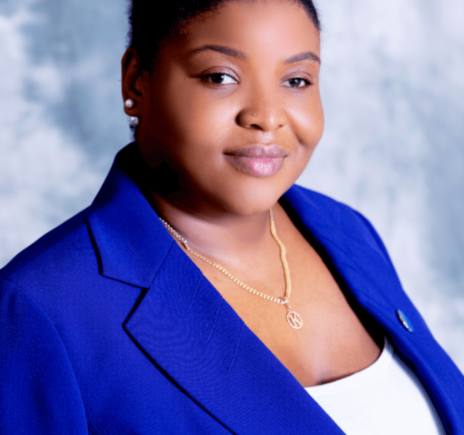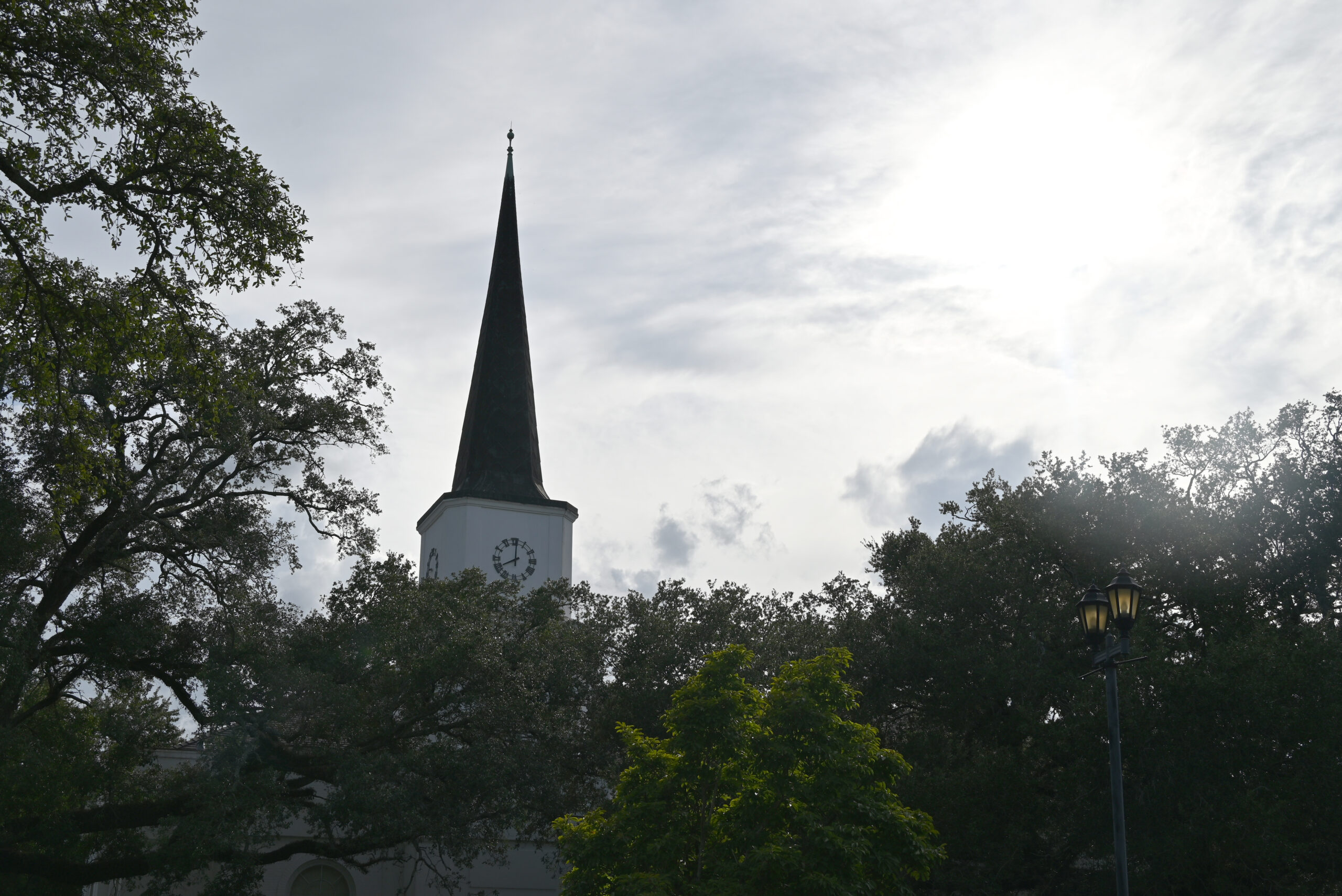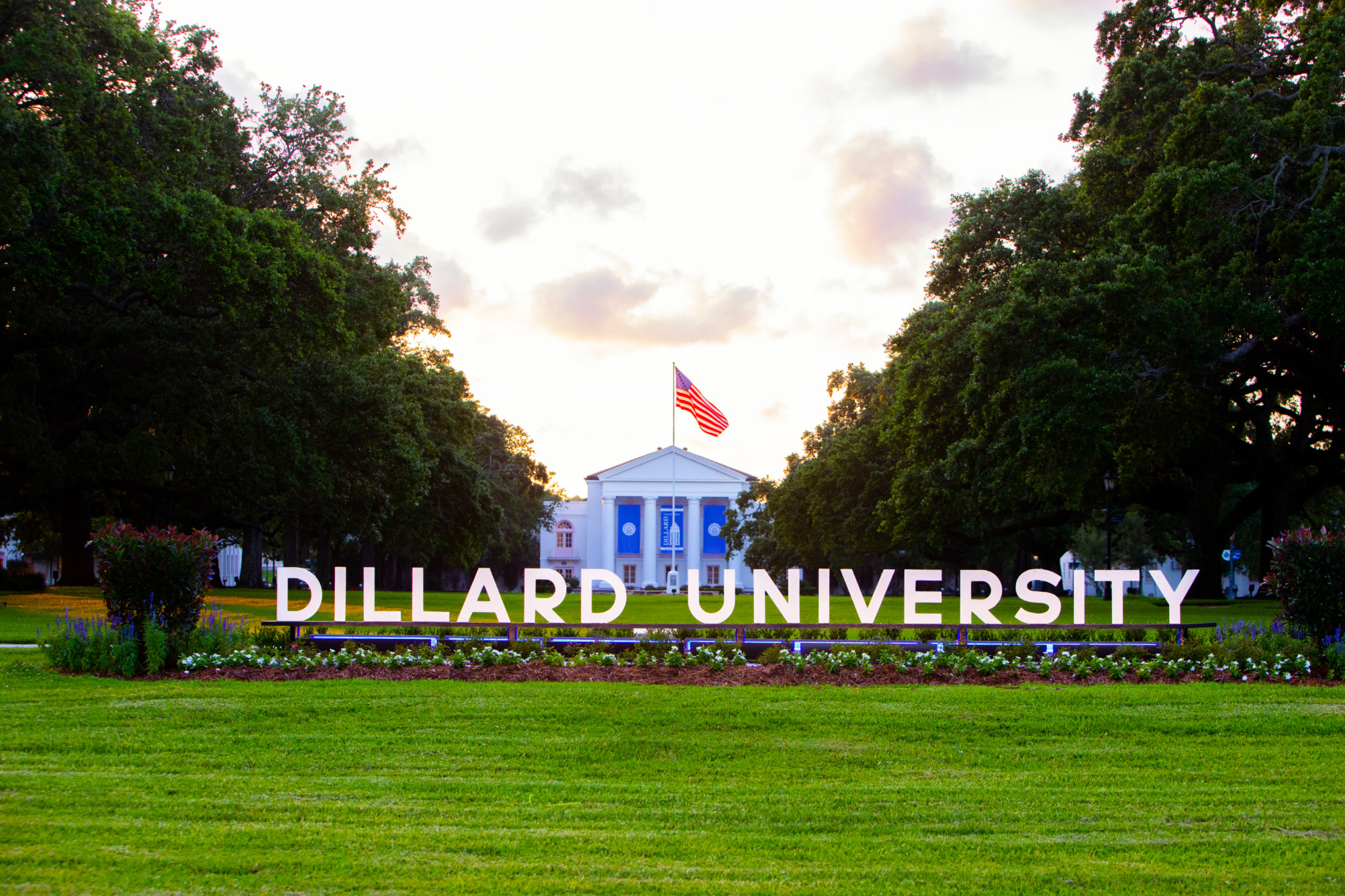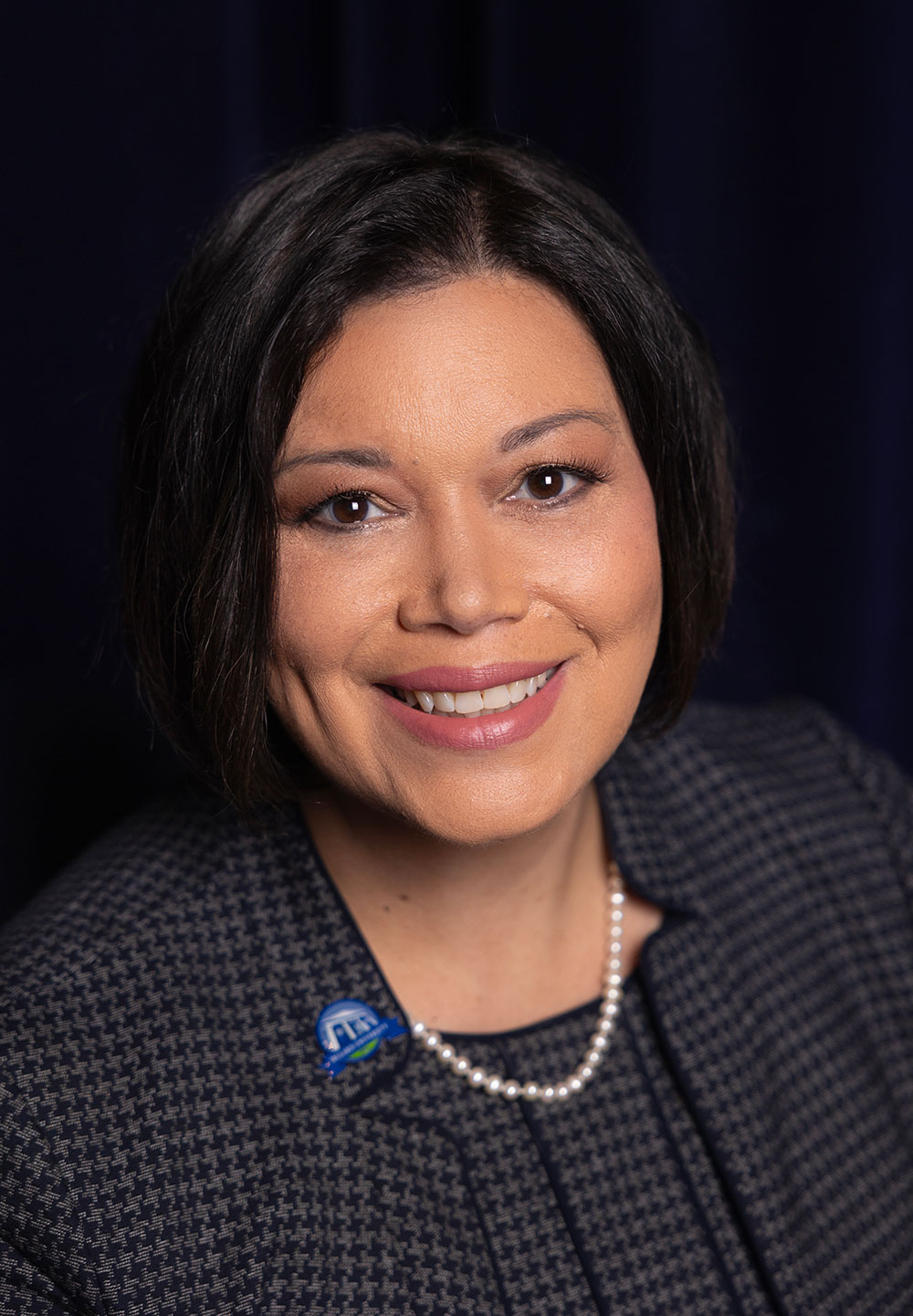Dr. Kimberly Moorehead ‘04, dean of Dillard’s University College, is a native of St. Croix, United States Virgin Islands. A Dillard University alumna, she earned a bachelor’s degree in mass communication, a master’s degree in educational leadership from the University of Nevada, Las Vegas, a graduate certificate in organizational learning and change and her doctorate in higher education administration from the George Washington University. With over 17 years of experience across multiple institutions, Dr. Moorehead has a demonstrated history of working with faculty and staff to assist students in completing their educational goals across educational levels (undergraduate, graduate, and alumni). In her new role, Dr. Moorehead will focus on enhancing and maintaining an environment that fosters positive student experiences, promoting teaching excellence, championing innovation, and developing strong internal and external partnerships. Dr. Moorehead’s research interests include peer education, student mentorship, student engagement and a sense of belonging. She is a proud member of the Alpha Kappa Alpha Sorority, Incorporated. In this interview with the Office of Communications and Marketing, Dr. Moorehead shares her journey home to Dillard.
Dillard University (DU): Tell us about your Dillard journey. How did you find out about the University?
Dr. Kimberly Moorehead (KM): My Auntie Rosie is the director of the Upward Bound program for the University of the Virgin Islands- St. Thomas campus and told my mom, “There’s this school that gives scholarships that Kim needs to apply to!” And basically, that’s all it took. My mom told me to go find the school at my high school’s college fair and that is where I met Mrs. Linda Nash who ultimately won over me (and my family). I ultimately applied to four colleges: University of Maryland-College Park because gymnast Dominique Dawes went there, Clark Atlanta University because the rapper Ma$e attended (and I loved Ma$e), Xavier University (of Louisiana) because I completed the EXCEL summer program during high school there. I ultimately chose Dillard after receiving a scholarship and visiting the campus.
One of the things that will forever endear me to Dillard was an experience that occurred my freshman year. I was 16 [when I came to Dillard] and my mom didn’t want me to not know anyone for my birthday. So she called Mrs. Nash and sent her money to get me a cake. Mrs. Nash coordinated with the girls who lived in my residence hall to host a birthday party for me. Small things like that cemented my affinity for the University. Another example happened my junior year, when I had to have eye surgery and was out of commission for quite some time. [Despite that] the campus rallied around me! People I didn’t even know asked me if I was doing okay. My professors visited me in my residence hall to check on me while I was healing. The entire campus community ensured that I had rides to and from the doctor as well as general support. Some members of the Beta Phi chapter of Alpha Phi Alpha fraternity would even pick my medication for me, and even picked my mom up from the airport when she came to visit me and ran us around to different doctor appointments. Those were positive experiences as a student and I feel like it is my turn to take the passion and love I have for Dillard as a former student and alumna to give back to the current students.
DU: Why did you choose higher education for your career path?
KM: My first job in higher ed was at Dillard. I never imagined that this is where I would end up, honestly. When I got to Dillard, my major was pre-law but the summer before I came to Dillard, I did an internship at a law office and realized that I made the wrong call. When I got to campus, I read all the requirements in the university catalog for each major (laughs) and I eventually switched my major to mass communications because I wanted to work for the Atlanta Braves. My decision to read the entire catalog and familiarize myself with all requirements should have been a giveaway that I would have started out as an advisor but nope, I wanted to work in the sports industry. During my time at Dillard, I served as the sports editor for the Courtbouillon. I also had a sports talk show on the campus radio for a while. I really thought I would end up working in sports in some capacity but the steroids controversy turned me off from Major League Baseball, so I ultimately decided to love sports as a fan rather than an employee of the industry.
Graduation month came and I didn’t know what I was going to do afterward. It just so happened that the Emerging Faculty Fellowship application opened. I was recommended to apply for the job by several of my professors because everyone knew how diligent I was about taking the right classes.
I went through the process and was fortunate enough to get the job! That began my journey in higher education. It is ironic because my father worked in higher education and he was like, “I did not see this coming at all.” So, entering higher education in the fall of 2004 was an interesting time because [the next year] was Hurricane Katrina.
DU: What was that experience like?
KM: When Hurricane Katrina happened I assisted in the evacuation of students from Dillard to Shreveport. I was a part of the Hurricane Katrina transition team and that was an amazing opportunity for me as an entry-level person. It allowed me to sit in and participate in conversations with former President Marvalene Hughes and cabinet members of that time. We [strategized] how we were going to move the University forward. That exposed me to the administration side of higher education. It intrigued me because I am analytical and like to understand how things work. That experience showed me what was behind the curtain of higher education. Hurricane Katrina exposed me to the more major issues one does not think about.
DU: What did you transition to after the Emerging Faculty Fellowship ended?
KM: My supervisor (at the time), Dr. Henrietta Harris, asked where I would go to graduate school. I applied to two schools and decided to go to the University of Las Vegas (UNLV); my degree is in educational leadership.
In my first year at UNLV, I worked in student life. The second year, I completed my graduate assistantship with Dr. Cecilia Maldonado who was serving as the faculty senate president in addition to the chair of her department. She allowed me to be the scribe for the faculty senate meetings and even contribute to their discussions. This ultimately afforded me to develop relationships with several key decision-makers on campus thus expanding my knowledge of the inner workings of higher education. After I graduated from UNLV, I went to the University of Arkansas-Little Rock. My primary student population there were students who had developmental courses and those who were adult learners. This position helped me develop as an administrator by considering the experiences of non-traditional students. My position was grant-based so when it ended, I moved back to New Orleans while I job hunted over the summer. While there, I volunteered at the Xavier University of Louisiana with EXCEL program that I completed in high school. In the midst of my volunteering at Xavier, I was made aware of a position that aligned with my background so I applied and ultimately got that position. This role cemented my love for higher education as well as helped me find “my lane” in higher education.
The students I worked with were phenomenal. There are no words to describe. One student group in particular influenced my dissertation topic to the point that I dedicated my dissertation to them. I knew to move up in higher education, I would need my doctorate. So, I left Xavier and moved to Washington, D.C. to complete my doctorate at George Washington University. My dissertation focused on student leaders based on the experiences I had at Xavier. Those students inspired my research.
Once I graduated and I started my job search I knew that I wanted to be at an HBCU completing the work that aligned with not only my dissertation but with “my lane.” Dillard has always been on my radar; generally as an alumna but when I saw that the dean of University College position opened, I knew I had to apply.
DU: How do you plan on helping shape the freshmen class despite setbacks (COVID-19, social justice issues and now, Hurricane Ida)?
KM: The expectations that freshmen students (or anyone enrolled in college now) are different from when I was a student. That is what I appreciate about higher education; things constantly evolve. I cannot pull out a syllabus from ten years ago and expect it to work. That is one of the things I want to bring to the role. I need to engage with students to learn how they are feeling, what they want to learn and try to adapt as much to make sure I am meeting their needs and expectations. The workforce is also changing, so students have to learn how to navigate being Black in America. One of the topics we will talk about in the freshmen class is self-advocacy and what it looks like. Those conversations will help the freshmen reflect on who they are as they navigate their time at Dillard.
DU: You’ve done your own “Sankofa” journey at Dillard. What should the Class of 2022 know about becoming alumni of the University?
KM: One thing I appreciate about my Dillard family, especially my classmates, is the support that the Dillard community offers. Like I said earlier, I wanted to work in sports and my faculty mentor was Dr. Jinx Broussard. Anytime something sports-related came up, she told me about it. I had the opportunity to interview Carmelo Anthony when he played for Syracuse University as well as some other really great experiences. I think what makes Dillard great is our faculty and alumni base. I and other alums always remember home (Dillard). In my position, I want students to have experiences where they feel good about the University and ultimately remember to pay it forward when they have the opportunity. I know that I have pulled out my phone to call alums or other industry folks to connect students to someone in their dream careers. I ultimately remind them that it is important to give back not only monetarily but share their experiences both the win and losses as teachable moments.
